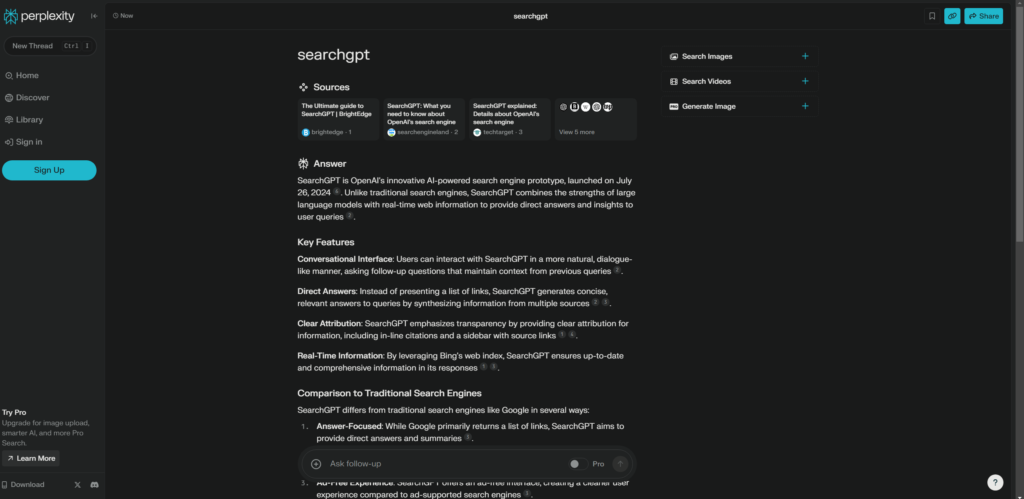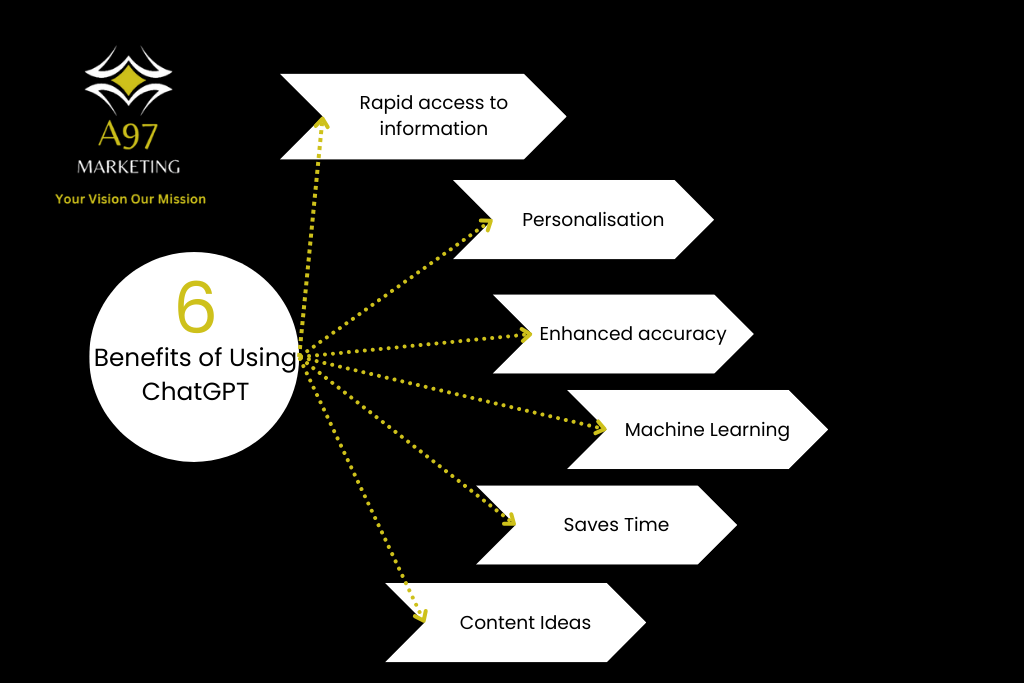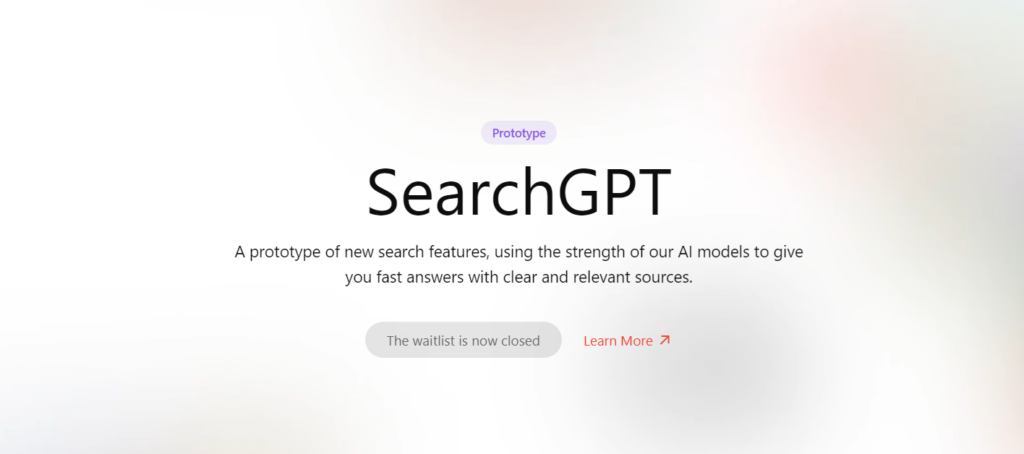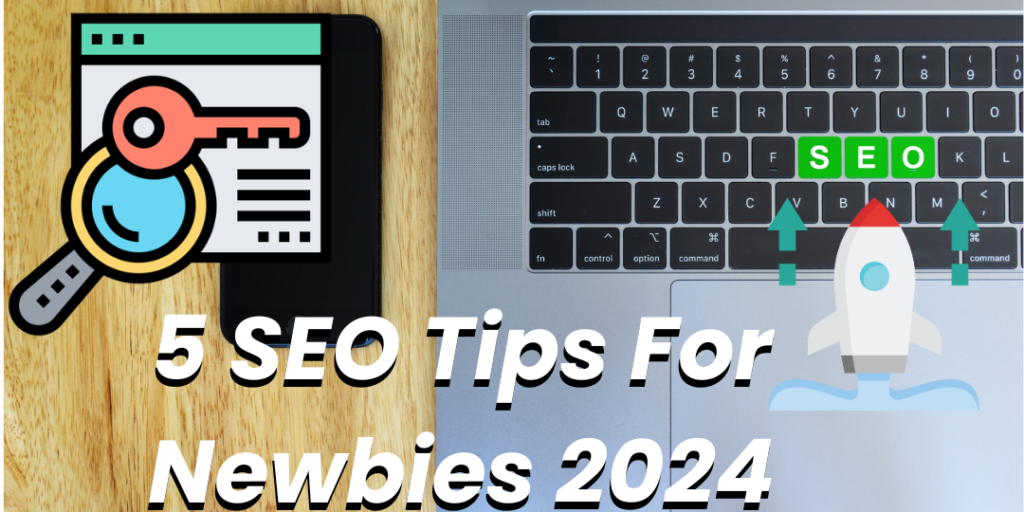GPT in Search: The Future of AI-Powered Info Collection
The ongoing surge of Generative Pre-trained Transformers (GPT) has truly transformed how we as users interact with information, particularly in search engines. As our digital landscape evolves, GPT models are starting to show they’re key players in supplying more intuitive, accurate, and context-rich search experiences. This blog jumps into how GPT is transforming the search process, its potential benefits, and what the future holds for AI-powered search technologies such as SearchGPT.
What is GPT?
First you must know what GPT is all about, it was developed by OpenAI in 2018 and it is a type of AI model designed predominantly to recognise and generate human-like text, based on huge amounts of data with 1.7 trillion parameters and using 13 trillion tokens (word snippets) we’re talking over 133 billion petaFLOPS!
Source: RI.SE
Learning from a diverse range of internet text, GPT models can understand context, answer any questions, produce content, and even participate in conversations. These features make GPT a game-changer for numerous applications, especially search engines… Google is watching 👀
GPT and Search: A New Archetype
This is not the first AI Search Tool out there others such as Perplexity, Google AI Overviews & Arc Search are also active. Current search engines rely on keyword matching and grading algorithms to show you results, but have you noticed they often struggle to recognise the true intent behind a question. GPT models, however, truly excel in comprehending natural language, displaying results that go beyond any old simple keyword matching. By interpreting the context and meaning behind a query, GPT can offer a more applicable and thorough answer!

Perplexity AI
1. Contextual Comprehension
GPT-powered search engines can take in the nuances of language, making them more useful in delivering accurate results for multifaceted or vague queries. For example, a search for “best laptop for work” won’t just show a generic list of laptops—it may just show exact tailored suggestions that are made from specific work needs like 3D modelling, video editing, or office work.
2. Conversational Results
Users can use search engines to make them play out more like conversations. Users have the ability for follow-up questions, and thus the AI can maintain attention throughout the interaction. For example, when asking about the best holiday spots in Asia, a user can follow up with “What’s the weather like there in September?” and GPT can faultlessly conjure up the answer.
3. Content Generation
GPT can also generate unique content, this makes it handy for search engines that look to provide concise information from many sources. This in turn reduces the need to visit several websites, as the AI is able to organise and show comprehensive data of the query in one section.
Also SearchGPT has the potential to incorporate CRM data & other tailored info, so it can mould search results uniquely for each user!
Possible Benefits of GPT in Search
- Improved Precision: By knowing the reasoning behind queries, GPT is able to produce more precise results.
- Enriched User Experience: A more conversational method makes search feel more natural and engages users in a more human way.
- AI Chatbots: Don’t forget the use of AI chatbots powered by SearchGPT to help businesses answer customer queries with ease including guides, personal recommendations, purchase decisions and even videos at some point!

Neil Patel– Source: Datacamp
Challenges and Moral Considerations
Despite its numerous strengths, GPT in search engines increases certain worries:
- Bias: Because GPT models are taught with a multitude of datasets from the web, they sometimes may inherit biases present in the actual data. This allows skewed or biased search results.
Trust: GPT might show answers that seem definite but are factually wrong, so it can be like a mirage. This is quite a big issue if trust
is to be put into such AI-Powered search engines. - Privacy: The data which powers AI Models, such as personal searches & information, certainly raise questions about our privacy and how this data is stored.
The Coming of GPT in Search
As the GPT models continue to grow, we will expect more search engines to show AI-powered technologies such as with Google right now with Google AI Overview and Microsoft including advanced language models into search parameters. To allow us more eloquent and interactive search experiences.

What to Anticipate:
- Personalized Search: Whilst AI understands user preferences and behaviour, it will enable itself to show tailored search results & recommendations
- Multimedia Search: GPT models are progressively capable of processing not just copy but also images and other forms of media. So it opens the floor to enabling image and text inputs to get the desired results, maybe even videos in the future!
- Real-time Search Adaptation: With real-time learning, GPT-enabled search engines could instantly adjust to user needs, delivering more relevant results as interests and trends change.
Conclusion
The future of search is being shaped by GPT models, which will make it easier, more intelligent, and more user-centered to locate information online. Even if there are obstacles to be solved, GPT is a promising tool in the search industry since it has the ability to increase efficiency, customisation, and accuracy.
Our methods for finding and interacting with information will probably change as AI develops. Search appears to be more intelligent and responsive than ever in the promising future with GPT at the forefront.
Remember to stay tuned for more updates on marketing tips and more here at A97 Marketing!
Email haran@a97marketing.co.uk if you would like us to work with you to improve your online presence and strategies!


